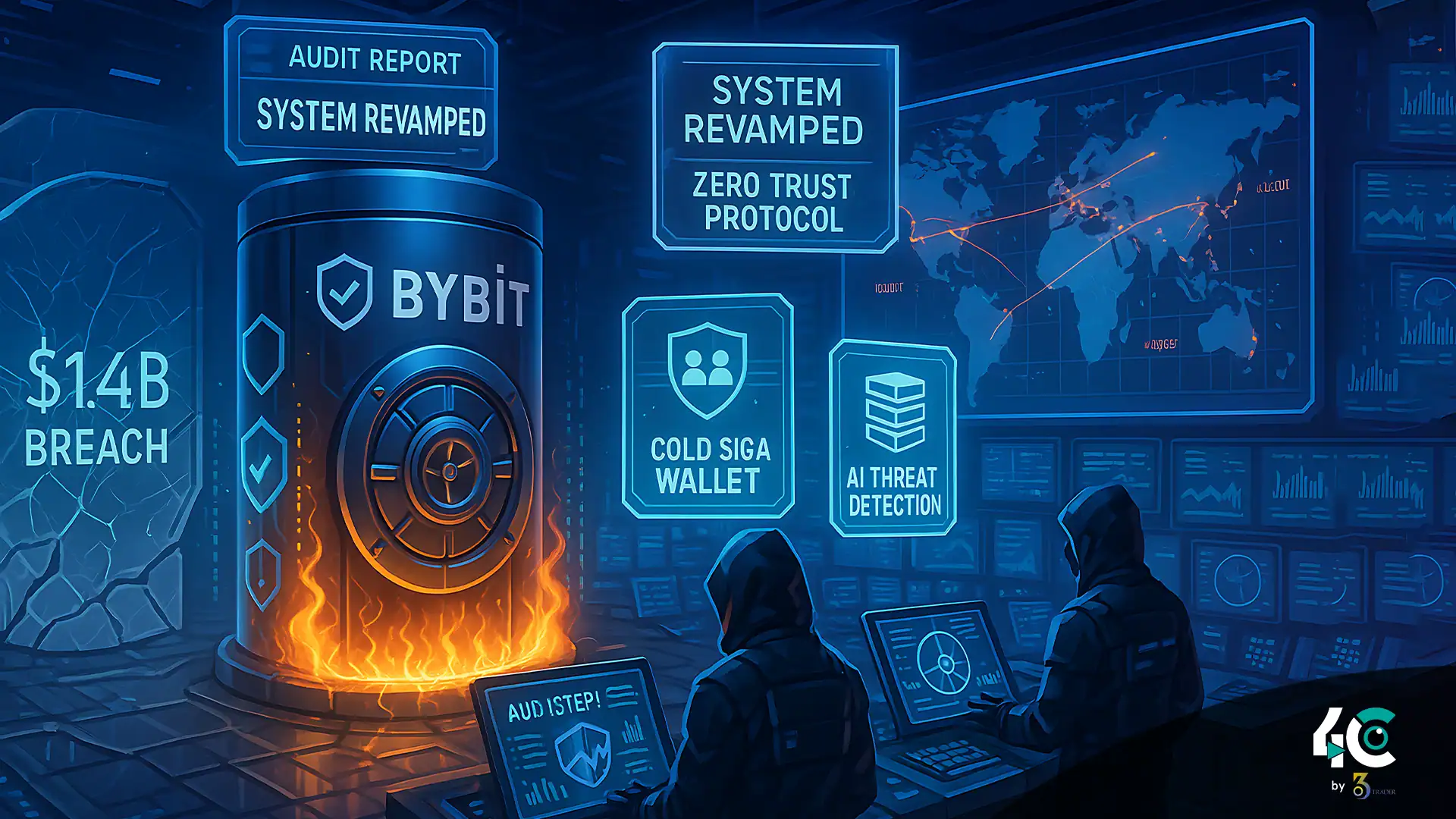Securing Aftermath of Hack, Bybit Changes Its Security
Bybit, one of the world’s leading cryptocurrency exchanges, has rolled out a sweeping security upgrade after a $1.5 billion hack, which is one of the biggest exploits ever in the crypto world. On February 21, 2025, an attack took advantage of a vulnerability during a cold-to-warm wallet transfer of ETH and ERC-20 tokens.
The Anatomy of the Breach
The creator of Bybit, Ben Zhou, confirmed the incident resulted from a “masked” user interface during a wallet operation. Hackers cleverly altered the on-screen displays for the signers to mislead them into granting control over the Ethereum cold wallet of the exchange. As a result, the wallet lost most of its assets.
Zhou assured users that a single ETH cold wallet suffered losses and all client funds remained safe and fully backed, despite the huge loss.
Strengthening the Defense: Three-Pronged Security Upgrade
On June 4, Bybit released a statement that reveals its upgrade strategy that centers on three key areas.
Intensive Security Audits
Less than a month after the incident, nine audits, both internal and external, were completed. These audits led to over 50 new security enhancements.
Wallet Protection Protocols
Bybit implemented MPC, revamped cold wallet management measures, introduced real-time monitoring of key storage, and consolidated HSM for further protection.
Enhanced Information Security
Bybit now encrypts all internal and client communication after being certified with ISO/IEC 27001. The purpose of the upgrades is to thwart future attacks through social engineering or at the code level.
Under Suspicion: The Lazarus Group Attack
Intelligence firms that specialize in blockchain, including Arkham and Elliptic, traced the stolen funds to wallet patterns linked to North Korea’s Lazarus Group. This entity has been tied to other major attacks that include the Ronin Bridge hack.
As the authorities and expert teams keep analyzing all the digital footprints for clues, Bybit’s LazarusBounty program has already paid out $2.3 million in rewards for useful leads.
Fast Liquidity Recovery and Market Stability
Remarkably, Bybit’s trading ecosystem rebounded swiftly. In less than a month, the Bitcoin market depth returned to its pre-hack levels. The liquidity of altcoins has also recovered by over 80% due to the Retail Price Improvement (RPI) orders, which helped improve institutional capital and provided stability to trading conditions when liquidity was under pressure.
Industry Experts Call for Structural Reform
The attack was a focal point at ETHDenver 2025, with experts calling for a re-evaluation of security crypto infrastructure.
In Kai Wawrzinek‘s opinion, it would be better for companies to utilize decentralized clouds as opposed to centralized services.
Oliver Gale of Panther Protocol commented that the actual failure was poor key management and not centralization itself, adding that something as basic as air-gapped signing would have sufficed to prevent the hack.
According to Phil Mataras of AR.IO, the prevention of the fallout from such an attack requires tamper-proof decentralized storage.
Louis Bellet of Yellow claimed that centralized exchanges are always a systemic risk, and there is an urgent need for trustless alternatives.
Human Error: The New Weak Link
According to Bybit’s postmortem, hackers turned their focus from flaws in code to users instead of code. The most sophisticated breaches now utilize deception such as impersonating legitimate wallet interfaces or misleading internal operators.
“Smart contracts are no longer the weakest link,” said CertiK‘s Ronghui Gu. “Human error is.”
What Lies Ahead?
This incident will bring stricter regulations and more security innovations.
- Mandatory security audits and proof-of-reserves.
- More robust cold storage standards.
- Increased investment in decentralized infrastructure.
Bybit has shown a great ability to recover quickly and reassure users despite the breach. But the bigger question for the industry is whether the crypto platforms will see this as a final warning to revamp security or it will take yet another breach worth a billion dollars.



























